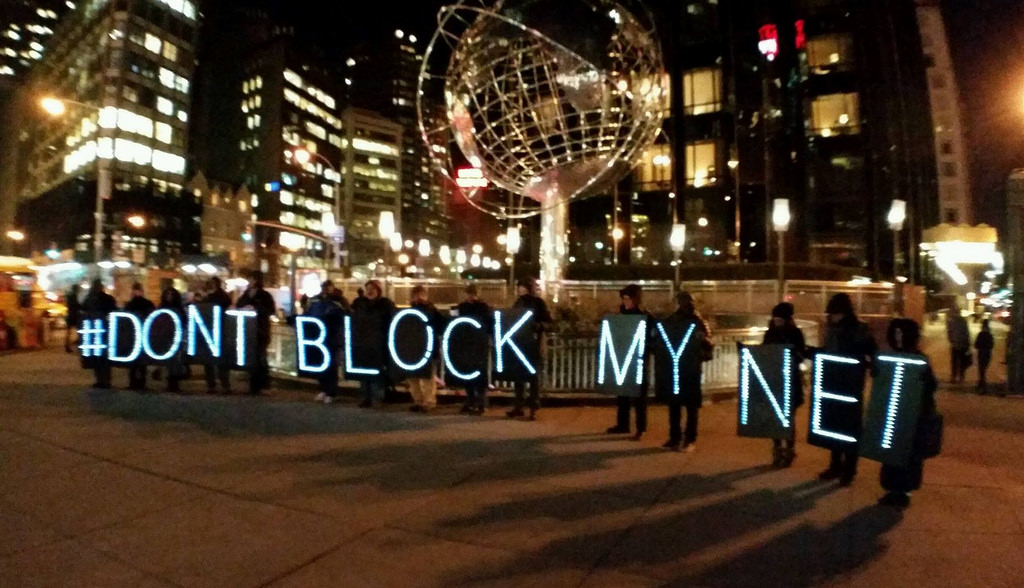
Net neutrality keeps the internet free, equal and democratic. The idea is simple — your right to use the internet is equal to mine, as long as you are able to pay for your service.
That doesn’t mean that the internet service provider isn’t allowed to provide different speeds of internet — they are allowed to do that, with the rule that service between two different users will be relatively equal, assuming that they are paying for the same tier of speed. It also means that speeds slow down for everyone by an equal proportion under high loads.
Instead, the focus is on avoiding discrimination based on the identity of the user or the content of the traffic. That’s where the “neutrality” part comes in — it doesn’t matter what you’re doing on the web, the ISP must be agnostic to the activity that you’re doing, whether you’re a researcher reading papers online, a streamer broadcasting his gameplay to the world or a developer creating the replacement for Instagram.
Hypothetically, if traffic is high during prime time hours, everyone would suffer a 10 percent decrease in speed, even if you’re a Netflix viewer using more bandwidth than average. While this is a burden on internet service providers, it has allowed the internet to become a superconductor of data and innovation. It keeps the internet as a level playing field for everyone and enhances user experience. Even a potentially disruptive innovation that utilizes the internet can’t be shut down by established companies who have enough resources to pay off ISPs. A streamer who uses up more bandwidth than a researcher has the same right to access as someone who occasionally checks his emails.
Despite the benefits of an open internet, ISPs and deregulation activists claim that this holds them back from providing better and faster internet services. Being forced to comply with these regulations cuts into their profits, which could be used to upgrade infrastructure.
Why should they charge a streamer the same price as someone who casually browses? Doesn’t it make sense to charge more for people who use up more bandwidth? And what about companies? If a company wants to bid for exclusive access to shut out their competitors or gain higher priority traffic, why can’t they do that?
Their users tend to use more data too, so it stands to reason those users should have to pay for additional packages to maintain the same speeds. It would only be fair, after all, to make high bandwidth services like Hulu and Netflix bid for the best access speeds because their services use up the most data.
While this would ensure that the most demanding internet users pay more than the average user, the effects of this would create a two-tiered internet. A possible outcome of this is that certain content providers will have to pay more for ISPs to make their content available, but it would have a much higher priority than other web traffic.
Alternatively, the cost would be placed on the user — in order to have speeds fast enough for said content, an additional fee would have to be paid. In either way, the end result is the same — web traffic from a select few applications is privileged, and the rest of us who aren’t using that application are relegated to slower speed internet. Netflix, YouTube and Hulu all use up large amounts of data, so it is likely that their services would be chosen for privileged access — give the ISPs more money to cut in front of everyone else, or cope with slow speeds and risk the possibility of being denied service.
Does that mean that the internet is unsustainable if we don’t put in tiered access to provide for the cost of infrastructure? The answer isn’t clear. While smaller ISPs tend to be hit harder by these rules because they don’t have the resources to keep up with the demand, established providers that supply most customers are able to do so while still making a large profit, and the average internet speed has actually increased at a steady pace after net neutrality was implemented.
However, if the costs of an open internet are as high as what service providers suggest, then it is an even stronger argument for the internet to be treated as a public utility so that some of the infrastructure costs can be shared by the public. Even in the unlikely worst case scenario where internet infrastructure needs to be subsidized in order to maintain net neutrality, the cost is still warranted by the benefits of unhindered internet innovators and equal access for all.
An open internet benefits everyone, acting as the road to the greatest asset of the twenty-first century: information.
We would lose an unthinkable amount of progress, innovation and freedom if access to information was hindered simply because it doesn’t align with the financial interests of a select few, or because it isn’t immediately profitable.

